Ditapis dengan

Medieval Philosohy
- Edisi
- Revised Edition
- ISBN/ISSN
- 0888447043
- Deskripsi Fisik
- xxi + 455 pg.; 24 cm.
- Judul Seri
- -
- No. Panggil
- 189 MAU m
- Edisi
- Revised Edition
- ISBN/ISSN
- 0888447043
- Deskripsi Fisik
- xxi + 455 pg.; 24 cm.
- Judul Seri
- -
- No. Panggil
- 189 MAU m
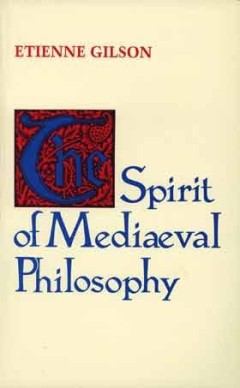
The Spirit of Mediaeval Philosophy
In this book (a translation of his well-known work L'esprit de la philosophie medievale), Etienne Gilson undertakes the task of defining the spirit of mediaeval philosophy. Gilson asks whether we can form the concept of a Christian philosophy and whether mediaeval philosophy is not its most adequate historical expression. He maintains that the spirit of mediaeval philosophy is the spirit of Chr…
- Edisi
- -
- ISBN/ISSN
- 0268017409
- Deskripsi Fisik
- ix + 490 pg.; 21,5 cm.
- Judul Seri
- -
- No. Panggil
- 189 GIL s

The Cambridge Companion to Plotinus
Plotinus is the greatest philosopher in the 700 year period between Aristotle and Augustine. He thought of himself as a disciple of Plato, but in his efforts to defend Platonism against Aristotelians, Stoics, and others, he actually produced a reinvigorated version of Platonism that later came to be known as "Neoplatonism". In this volume, sixteen leading scholars introduce and explain the many…
- Edisi
- -
- ISBN/ISSN
- 0521470935
- Deskripsi Fisik
- xiii + 462 pg.; 23 cm.
- Judul Seri
- -
- No. Panggil
- 186 CAM c
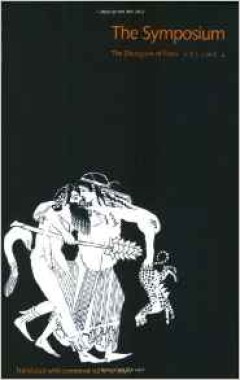
The Symposium: The Dialog of Plato Volume 2
R. E. Allen’s superb new translation of Plato’s Symposium brings this classic text to life for modern readers. Allen supplements his translation with a commentary that not only enriches our understanding of Plato’s philosophy and the world of Greek antiquity but also provides insights into present-day philosophical concerns. Allen reveals the unity of Plato’s intentions in the S…
- Edisi
- -
- ISBN/ISSN
- 0300048742
- Deskripsi Fisik
- ix + 178 pg.; 23,5 cm.
- Judul Seri
- -
- No. Panggil
- 184 PLA s 2
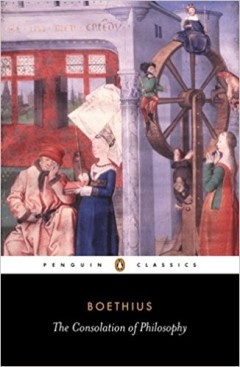
The Consolation of Philosophy
Boethius was an eminent public figure under the Gothic emperor Theodoric, and an exceptional Greek scholar. When he became involved in a conspiracy and was imprisoned in Pavia, it was to the Greek philosophers that he turned. The Consolation was written in the period leading up to his brutal execution. It is a dialogue of alternating prose and verse between the ailing prisoner and his 'nurse' P…
- Edisi
- Revised Edition
- ISBN/ISSN
- -
- Deskripsi Fisik
- xxxvi + 155 pg.; 20 cm.
- Judul Seri
- -
- No. Panggil
- 180.937 BOE c

Filsafat Politik Aristoteles
- Edisi
- -
- ISBN/ISSN
- 9794211435
- Deskripsi Fisik
- x + 162 pg.; 21 cm.
- Judul Seri
- Seri Filsafat Politik Nomor 2
- No. Panggil
- 185 RAP f
- Edisi
- -
- ISBN/ISSN
- 9794211435
- Deskripsi Fisik
- x + 162 pg.; 21 cm.
- Judul Seri
- Seri Filsafat Politik Nomor 2
- No. Panggil
- 185 RAP f
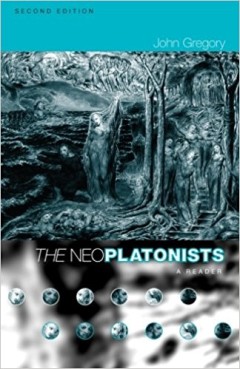
The Neoplatonists: A Reader
- Edisi
- Second Edition
- ISBN/ISSN
- 0415187842
- Deskripsi Fisik
- viii + 189 pg.; 21,5 cm.
- Judul Seri
- -
- No. Panggil
- 186.4 GRE n
- Edisi
- Second Edition
- ISBN/ISSN
- 0415187842
- Deskripsi Fisik
- viii + 189 pg.; 21,5 cm.
- Judul Seri
- -
- No. Panggil
- 186.4 GRE n

Plato's Charmides and The Socratic Ideal of Rationality
In this book, W. Thomas Schmid demonstrates that the Charmides--a platonic dialogue seldom referenced in contemporary studies--is a microcosm of Socratic philosophy. He explores the treatment of the Socratic dialectic, the relation between it and the Socratic notion of self-knowledge, the Socratic ideal of rationality and self-restraint, the norm of holistic and moral health, the interpretation…
- Edisi
- -
- ISBN/ISSN
- 0791437639
- Deskripsi Fisik
- xv + 255 pg.; 23 cm.
- Judul Seri
- -
- No. Panggil
- 184 SCH p
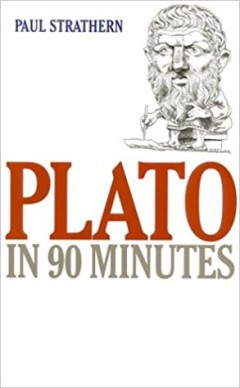
Plato in 90 Minutes
“Each of these little books is witty and dramatic and creates a sense of time, place, and character....I cannot think of a better way to introduce oneself and one's friends to Western civilization.”―Katherine A. Powers, Boston Globe. “Well-written, clear and informed, they have a breezy wit about them....I find them hard to stop reading.”―Richard Bernstein, New York Times. “Witty,…
- Edisi
- -
- ISBN/ISSN
- 1566631262
- Deskripsi Fisik
- 85 pg.; 20,5 cm.
- Judul Seri
- -
- No. Panggil
- 184 STR p

Theories Of Personality
- Edisi
- Edisi Ke-6
- ISBN/ISSN
- 9786028055346
- Deskripsi Fisik
- xx + 540 hlm.: ils.; 28,5
- Judul Seri
- -
- No. Panggil
- 155.2 FEI t
- Edisi
- Edisi Ke-6
- ISBN/ISSN
- 9786028055346
- Deskripsi Fisik
- xx + 540 hlm.: ils.; 28,5
- Judul Seri
- -
- No. Panggil
- 155.2 FEI t
 Karya Umum
Karya Umum  Filsafat
Filsafat  Agama
Agama  Ilmu-ilmu Sosial
Ilmu-ilmu Sosial  Bahasa
Bahasa  Ilmu-ilmu Murni
Ilmu-ilmu Murni  Ilmu-ilmu Terapan
Ilmu-ilmu Terapan  Kesenian, Hiburan, dan Olahraga
Kesenian, Hiburan, dan Olahraga  Kesusastraan
Kesusastraan  Geografi dan Sejarah
Geografi dan Sejarah